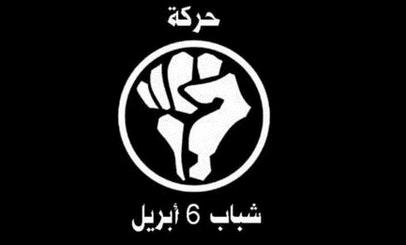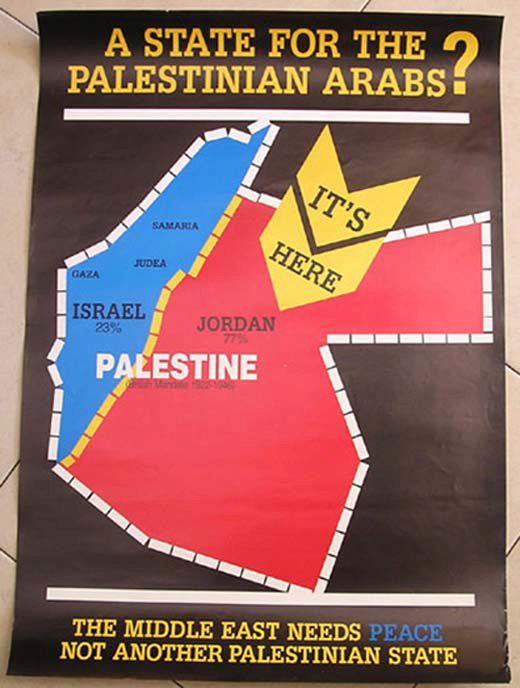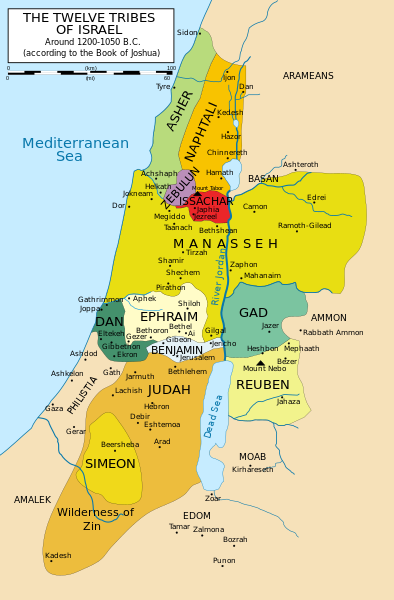Now it seems to came true as Egyptian military chief Gen. Abdel Fattah al-Sisi announced July 3 that the country's president, Mohammed Morsi, had been removed from office in the wake of popular unrest. In a short media statement, al-Sisi, who was flanked by the three armed services chiefs, opposition leaders, the sheikh of al-Azhar Mosque and the pope of the Coptic Church, announced that Adly Mansour, chief justice of the Constitutional Court, has replaced Morsi as interim president. He also announced that the constitution had been suspended. Mansour's appointment is notable in that one of the key demands of the Tamarod protest movement was that he become president. The provisional government will be holding fresh parliamentary and presidential elections.
Army troops backed by armor and including commandos have deployed across much of the Egyptian capital, surrounding protests by the president's supporters, and at key facilities and major intersections. But Morsi's backers denounced the army's intervention as a "coup". At least 16 people, mostly supporters of the president, were killed and about 200 wounded when gunmen opened fire on pro-Morsi demonstrators at Cairo University campus. The Muslim Brotherhood accused uniformed police of the shooting. The Interior Ministry said it was investigating. Al Jazeera reports that several members of the Muslim Brotherhood have reportedly been arrested.
Deposed Egyptian President Mohammed Morsi said on the official Facebook page of the presidency that the July 3 announcement made by military amounts to a coup and that he rejects it, Al-Ahram reported. Egypt's Salafist al-Nour Party announced its support for the military's "roadmap" for the country's political future and transition to new presidential elections, Al Arabiya reported July 3.
Door is open for reforms or even revolution as the coup and demonstrators might force elections in which ElBaradei or someone like him could be elected and Egypt might proceed on the path of democracy.
Final hours
Liberal opposition leaders, who have vowed not to negotiate with Morsi since the ultimatum was issued, immediately denounced his refusal to go as a declaration of "civil war". The opposition Dustour (constitution) party led former U.N. nuclear agency chief Mohamed ElBaradei appealed for military intervention to save Egyptian lives, saying Morsi's speech showed he had "lost his mind" and incited bloodshed. "We ask the army to protect the souls of Egyptians after Morsi lost his mind and incited bloodshed of Egyptians," the Dustour Party said in a statement.
The youth movement that organised the mass protests urged the Republican Guard to arrest Morsi immediately and present him for trial.
April 6 movement shows the way again
 I
have been following events in Egypt mostly in April 6 movement's
facebook group. The movement was founded in 2008 and e.g New York Times
has identified the movement as the political Facebook group in Egypt
with the most dynamic debates. As of January 2009, it had 70,000
predominantly young and educated members. The April 6 Youth Movement
helped organize the protests in 2011 that eventually toppled fomer
dictator Mubarak out from power. Some signs that new wide revolts are
coming was clear latest early this Spring.
I
have been following events in Egypt mostly in April 6 movement's
facebook group. The movement was founded in 2008 and e.g New York Times
has identified the movement as the political Facebook group in Egypt
with the most dynamic debates. As of January 2009, it had 70,000
predominantly young and educated members. The April 6 Youth Movement
helped organize the protests in 2011 that eventually toppled fomer
dictator Mubarak out from power. Some signs that new wide revolts are
coming was clear latest early this Spring.April 6 founder, Ahmed Maher, had announced his support for the Islamist president, against his rival who was associated with the former regime, during last year's presidential election. However on March 25, 2013 The movement compared a speech given by Mursi a day earlier to ones given by the former regime, describing it as "disappointing, especially from a leader who had claimed to have come to fulfill the goals of the uprising." (Source: Aswat Masriya )
April 6 movement called for a “rage day” against President Mohamed Morsi on the fifth anniversary of its establishment. “The time has come to say to Mursi, 'enough, you have broken all your promises; there are no programs to reform anything and every day we see destruction in Egypt. April 6, 2013, will be a day of anger; wait for us. Our strength is in our peaceful methods”.
On June 15th 2013 April 6 movement,assured that the movement began in preparing the groups around the state , to go down on June 30, explaining that the demonstrations will have one and clear demand ,early presidential elections after the failure of the president to fulfill any promise of his campaign promises and failing to achieve stability and prosperity,which he and his clan promised , beside breaking all the promises he promised to the National Front, which supported him in the presidential elections.
The opposition National Salvation Front, an umbrella group of liberal, secular and leftist parties, and the "Tamarud - Rebel!" youth movement leading the street protests have both nominated ElBaradei to negotiate with army leaders on a post-Morsi transition.
Tamarod-Rebel
"We
ask the army to intervene to prevent the bloodshed of the Egyptian
people ...This is a people's coup against a dictator and tyrant
president and the army of the Egyptian people has to respond to the
people's demands and act upon them." (Mahmoud Badr/ Tamarud)

- The petition form
Rebel Campaign (For the destitution of Mohamed Mursi Al Ayat)The National Salvation Front
- We reject you … Because Security has not been recovered so far
- We reject you… Because the deprived one has still no place to fit
- We reject you … Because we are still begging loans from the outside
- We reject you … Because no justice has been brought to the martyrs
- We reject you. .. Because no dignity was left neither for me nor for my country
- We reject you… Because the economy has collapsed, and depends only on begging
- We reject you… Because Egypt is still following the footsteps of the USA
Since the arrival of Mohamed Mursi to power, the average citizen still has the feeling that nothing has been achieved so far from the revolution goals which were life in dignity, freedom, social justice and national independence. Mursi was a total failure in achieving every single goal, no security has been reestablished and no social security realized, thus and gave clear proof that he is not fit for the governance of such a country as Egypt.
The National Salvation Front (NSF) is an opposition coalition formed amid the recent political crisis which has engulfed Egypt. It has successfully brought together the country's fractious and divided opposition factions, who are now united in their resistance and rejection of what they see as a power grab by the president and his Islamist allies.
On 24 November 2012, a number of political parties and leading figures formed a coalition to force the president to rescind his decree; form a new, more representative constituent assembly; and issue a transitional justice law that guaranteed fair retrials for those responsible for the deaths of protesters during the uprising that ousted Hosni Mubarak. The NSF includes a wide range of liberal, secular and leftist groups, such as the Egyptian Popular Current, al-Dustour, al-Tajammu, Free Egyptians, New Wafd, Democratic Front, the Egyptian Social Democratic Party, Nasserist Democratic Party and the Conference Party. The National Front for Salvation of the Revolution has more than 35 groups involved overall. Its three most prominent leaders are Mohammed ElBaradei, the former head of the UN's International Atomic Energy Agency (IAEA); Amr Moussa, the former secretary general of the Arab League; and Hamdeen Sabahi, a Nasserist politician who came third in the presidential election.
Future road map (according opposition)
Egypt’s April 6 Youth Movement held a press conference on Tuesday 2nd July 2013 to announce their six-step political map leading to early presidential elections.
FUTURE ROAD MAP
In order to achieve the requests of the Egyptians gathering in a magnificent popular scene in the streets and squares of Egypt, and demanding the organization of an early presidential election, the 6th April Youth Movement asks everyone to assume their responsibilities toward the country and to work together for the realization of the justified popular demands in this historic moment according the following road map:
First:
Tomorrow before 15:00, Morsi shall declare the following:
1. The suspension of the current constitution;
2. The dissolution of the Shoura Council (the Second Chamber of the Egyptian Parliament);
3. The transfer of powers to the Head of the Constitutional court.
Second:
A committee of the highest caliber 20 Constitutional Jurists and Professors of Law in the Egyptian universities shall be established. It revises, assesses and modifies the constitution. The political currents shall provide the committee with their proposals of the articles requested to be modified. The constitution shall be presented to the people for a universal suffrage.
Third:
The head of the constitutional court shall set, within one week of assuming the presidential role, the date for starting the presidential elections candidacy period according to March referendum 2012 conditions, within a maximum of two weeks. The elections and its results shall be held within a maximum period of three months from assuming the role.
Fourth:
Establishing of a National Salvation Government of No-Party-Based Technocrats. All political currents shall propose names for the Prime Minister as well as for three Deputies with well defined duties. The head of the Constitutional Court shall select among the proposed names after consultation with the political currents. The nominated person shall establish the government with the commitment to nominate the three deputies among the names proposed ex-ante.
Fifth:
Establishing a council for the protection of the revolution including all the political currents and youth without excluding anyone. Its duty is to direct the State Public Policy for a period of three months and till the election of the magistrate councils, achieve a comprehensive national conciliation between all the parties and national currents without marginalization or exclusion in order to start a new chapter immuned against internal divisions and polarization of the nation, while activating a law for transitional justice upon which everyone shall agree.
Sixth:
The Parliamentary elections shall be held within a period of six months-one year from the date in which the Head of the Constitutional Court assumes power.
6th April Youth
Patriotism ahead of Politics
Principle ahead of Interests

My view
“After
the first successful thrust every revolution differentiates into
political and class currents. This is the moment of greatest danger. The
moment when the future of the revolution is decided.” (John Rees)
In my article Egypt at crossroads – theocracy, democracy or something between I highlighted two possible scenarios: Egypt has came to a crossroads – Egyptians may choose to embrace the model of a secular reformist state with a prominent role for the military as Turkey has done; there is a second possibility that the Islamists exploit the influence to gradually take the country into a reverse direction – not towards modernity and reform but backward, nearest example could be Iran.In my article Days of Rage on the Arab street I was a bit skeptical about possibilities for real revolution:
Egypt’s senior generals are part of the ruling establishment and army is up to its helmets in big business: shopping centers, tourism, property, hotels, steel, telecoms. A real revolution would require a Marxist revolutionary leadership by Egyptian workers and youth and there is no signs that such a party is possible to build in near future. There is a deep divide in the opposition and thus far do not appear to have been able to generate the type of mass movement that toppled the Shah of Iran’s regime in 1979.Sustainable significant change requires a new political structure, as well as a new process that ensures free and fair elections and adequate opportunities for popular participation. Real democracy must be substantive as well as procedural, bringing human security to the people, including basic needs, decent work, and a police that protects rather than harasses.
Many, particularly Morsi’s supporters within the still-vast Muslim Brotherhood, will likely see July 3 as a military coup, the return of decades of military rule that always loathed the Brotherhood. The oppositio will surely claim that the military stepped in only to safeguard the people’s will from Morsi himself. Anyway be it coup or revolution I think that now there is a window of opportunity open for democratization and reforms. Lets hope that next time the army is not needed to depose rulers.

 F
F
 I
generally ignore Israel’s biblical rights (e.g that the borders of
Israel in accordance with the divine promise in the Bible: from the
Euphrates to the river of Egypt) related to Judea and Samaria aka
Westbank but as they explain one part of Israeli's arguments today I
would like to mention from historical rights the era of tribal periods
when the Israelite tribes lived as a confederation. The Torah traces the
Israelites to the patriarch Jacob, grandson of Abraham, who was later
renamed Israel. Jacob's twelve sons "Israelites" (also the "Twelve
Tribes" or "Children of Israel") means both the direct descendants of
the patriarch Jacob/Israel as well as the historical populations of the
United Kingdom of Israel.This united monarchy was established in around
1020 BCE when the tribes united.
I
generally ignore Israel’s biblical rights (e.g that the borders of
Israel in accordance with the divine promise in the Bible: from the
Euphrates to the river of Egypt) related to Judea and Samaria aka
Westbank but as they explain one part of Israeli's arguments today I
would like to mention from historical rights the era of tribal periods
when the Israelite tribes lived as a confederation. The Torah traces the
Israelites to the patriarch Jacob, grandson of Abraham, who was later
renamed Israel. Jacob's twelve sons "Israelites" (also the "Twelve
Tribes" or "Children of Israel") means both the direct descendants of
the patriarch Jacob/Israel as well as the historical populations of the
United Kingdom of Israel.This united monarchy was established in around
1020 BCE when the tribes united.
